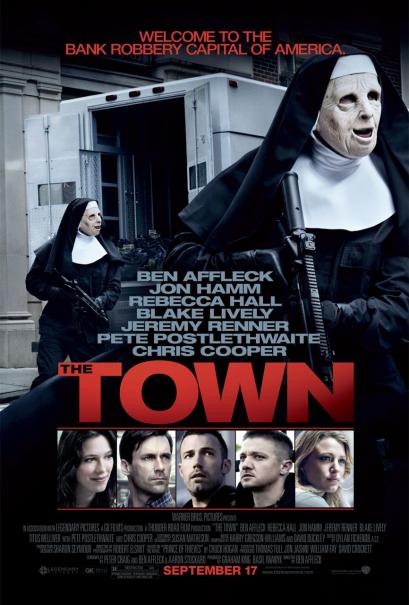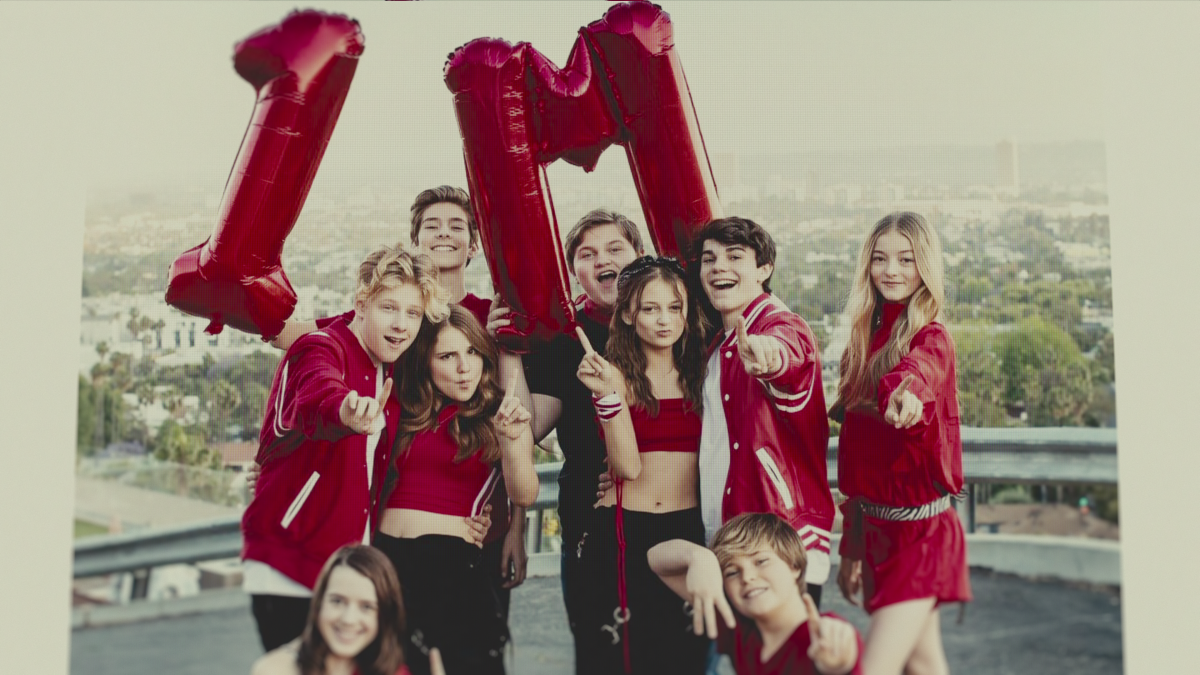
Since the outset of American cinema, crimes movies have been present, and, to this day, they remain an integral part of it. The continual success is probably due to the fact that their subject matter lends itself easily to things that interest the viewing public: car chases, betrayals, bad-boys and vixens, explosions, illegal substances, excess of wealth, etcetera, etcetera. There is another reason, however, that crime movies have remained a movie theater staple, a deeper, more substantial reason. The truth is, crime movies have a way of casting a light on every facet, good or bad, of the human psyche, thereby exposing every gory detail of the deepest recesses of our heads. “The Town” not only casts this light but throws it out boldly and leaves it, to make damn sure that we don’t forget about those gory details anytime soon.
“The Town”, an adaptation of Chuck Hogan’s novel “Prince of Thieves”, is the second film written and directed by Ben Affleck, whose 2007 debut, “Gone Baby Gone” received critical acclaim for its brutal portrayal of police officers trying to track down a kidnapper in the Boston suburb of Dorchester. This time, Affleck gives us an glimpse of what life is like on the other side of the law, through Doug MacRay (Affleck), leader of a small gang of bank robbers in a different Boston district, Charlestown. At the start of the film, MacRay and co. rob a Cambridge bank managed by Claire Keesey (Rebecca Hall); and, due to an error by MacRay’s best friend and right-hand man Jem Coughlin (Jeremy Renner), MacRay is forced to follow Keesey to make sure she doesn’t reveal too much to the FBI. The two begin dating (without her knowledge of who he is). Due to his new relationship, as well as the FBI attention his recent heists have been drawing, he decides he needs to escape from the town. But he finds out quickly that getting out is easier said than done.
Now, this might all sound a bit cliche– or, rather, nauseatingly cliche– and, by all means, it is. There’s a reluctant antihero of a protagonist, a witty-yet-vulnerable love interest, and an array of obstacles trying to keep them apart. There’s Adam Frawley (Jon Hamm) in the role of strong-jawed investigator, and Fergie Colm (Peter Postlethwaite) in the role of slimy crime boss. There are car chases and explosions and betrayals and illegal substances and a thousand other crime movie conventions. Now, the average crime movie would drown in these conventions and become nothing more than a fun popcorn-munching action flick. “The Town”, however, stays afloat– because it isn’t the average crime movie.
“The Town” is separated from the myriad of other crime movies by the greater thematical significance behind its panache. For instance, the portrayals of the main characters are very deliberate, precise. Hamm, Renner and Affleck all portray their characters as jerks with a purpose: Coughlin brutally murders people; Frawley possesses a blind, dumb hatred toward criminals; and MacRay does everything illegal a person can do. Each one, however, is acted with an underlying longing, a desire to escape from Charlestown. The script and directing too, are precise, with every aspect of the filmmaking, from the perpetually grey skies to the well-placed images of prisons, suggesting that we are all trapped on earth, and passion, not money or drugs, is the only way out. It might sound like a hokey premise, but Affleck and company express it in a beautifully visceral way, making the viewer believe every inch of it.
Aside from the cliches, there is one other fault to “The Town”: excess. There’s a lot going on in this movie– so much, in fact, that a number of smaller elements get the shaft and wind up underdeveleoped. For instance, MacRay’s familial issues– his deceased mother and incarcerated father– do in fact add to the story and themes, but there could have been more done with them. This same idea applies to MacRay’s baby-mama, Krista (Blake Lively) and the oxyconton ring smuggling to which she belongs. Also, there is a little bit of a backstory for Coughlin, but instead of explaining his angst, it just confuses the viewer. Basically, the movie should have delved deeper into these elements or, more ideally, Affleck should have scrapped these elements entirely.
Overall, however, Affleck shows his stuff. He proves that he knows what a crime movie should be: a dark, violent expression of the true nature of humanity. The flatter aspects of the movie– the cliches and excess– are only a minor deterrent. In fact, they could even be seen as positives, since they aid in the development of both MacRay’s character and the overarching themes. Plus, the film wouldn’t be able to be such a powerhouse of a crime film without its cliches, so maybe they aren’t such a bad thing after all. At the end of the day, they help make “The Town” successful as a crime film and as a movie in general. It’s a great blockbuster of a film with plenty of action and intrigue to entertain. The real success of “The Town”, however, is in the way that it, like all great crime movies, shines that ray of light onto the human condition, that ray of light that makes us think about who we are.








